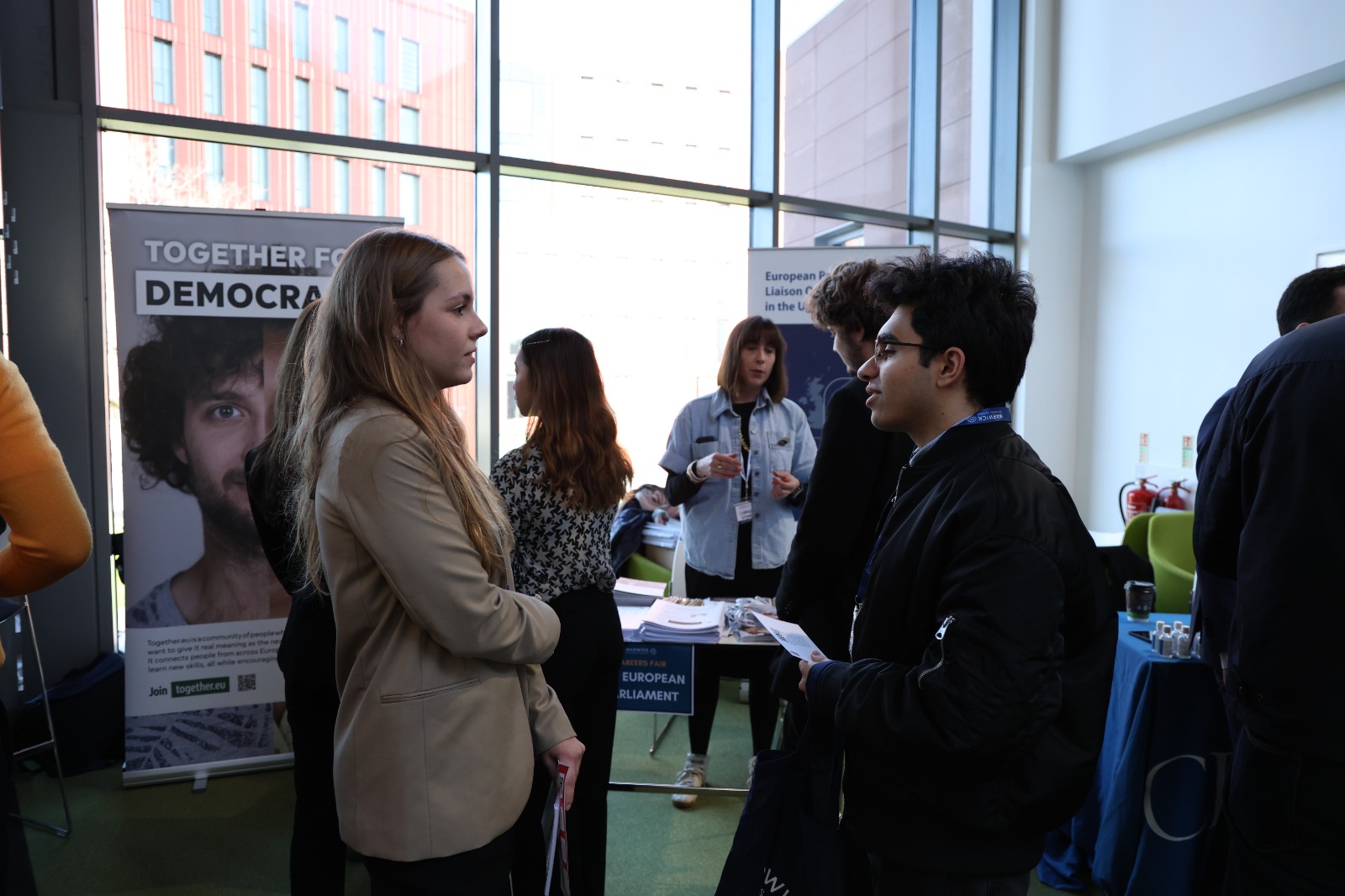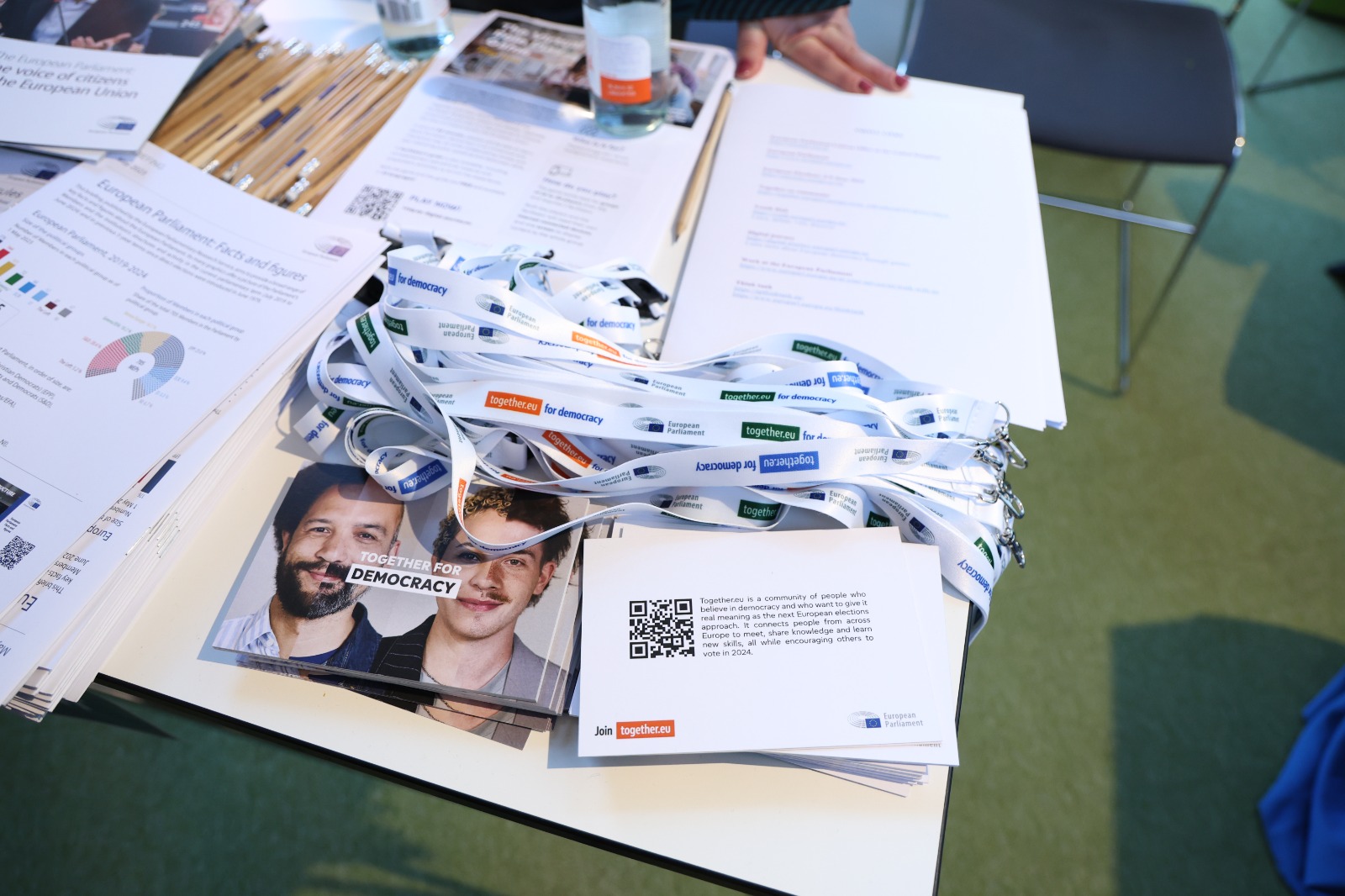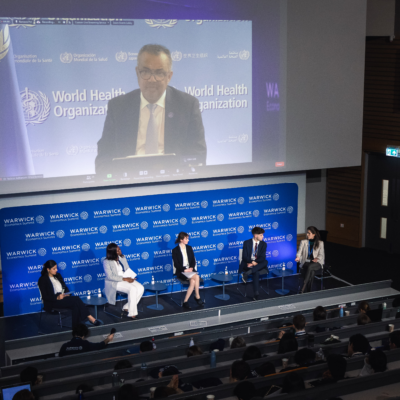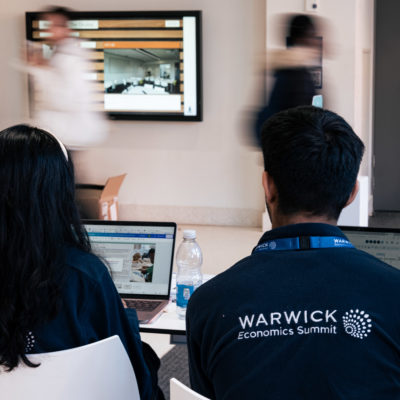Attending an economics summit as someone not specialised in economics could seem a risky business for accurate reporting.
The Warwick Economics Summit, however, is not just for skilled statisticians speaking a coded language amongst themselves. Instead, all those with an interest in the broad span of social sciences that economics is so closely connected to, from international relations to development to politics, and beyond, will find themselves engaged throughout the three-day event.
WES, as it is known on campus, is now in its twenty-second year, after being launched in 2002 by undergraduate students from the Economics Society at Warwick University, located close to Birmingham in the United Kingdom.
The 2024 event was held from February 2 to 4, with over 450 students in attendance, from across the United Kingdom, the European Union, the Middle East, Africa and the United States. After being forced into running a virtual summit by the COVID-19 pandemic in 2021, WES has since experimented with a hybrid model, with both in-person and virtual speakers and attendees. This year alone more than 800 people watched the conference online live.
Optimism in dangerous times
“This year is an unusual and very important year,” says John Ridding at the start of his keynote speech to a full room of attentive students. The CEO of the Financial Times uses his time on the Oculus stage to discuss artificial intelligence and the dangers it poses to democracy in a year where “half the planet is headed to the polls”.
Ridding, a former foreign correspondent at the FT who has now headed the leading daily newspaper since 2006, is a prime candidate to speak about these issues – and, despite saying he is “naturally an optimist”, he is clearly concerned about the need to address these, and so is his audience.
The summit’s slogan is “Join the Debate”, and attendees do precisely that during the question and answer time at the end of Ridding’s keynote, readily launching themselves into a weekend of engaged and intelligent conversation.

Good listeners
Four years on from the start of the pandemic, the recurring themes throughout the weekend’s events betray the anxiety of our times.
Students pour into the Oculus hall for each event (the afternoon sessions naturally busier than the early morning ones) and listen attentively to a wide range of speakers, from American economist Stephanie Kelton, to Governor of the Bank of Portugal Mario Centeno, to world leaders including Timor-Leste’s president (and 1996 Nobel Peace Prize laureate) José Ramos-Horta.
In response, these high-value individuals, whose schedules are no doubt filled to the brim (and some affably confirm this), listen just as attentively to their young audience’s questions. What brings such busy, important people to attend a student-led summit like this?
“It’s from young people that I learn, that I can see what they are interested in and what is important for them,” Mario Centeno tells Orange Magazine, during a “Meet the Speaker” session, an intimate meeting between a handful of delegates and their speaker of choice.
Centeno is, like many other VIPs in attendance, good-humoured and talkative, clearly buoyed by conversing with tomorrow’s economists and leaders in their respective fields.
The summit allocates no budget to pay for speakers’ time at Warwick, so, as Lancelot Wilson, one of the three chief organisers leading this year’s WES – alongside Samin Sabah Islam and Charlie Atkins –, says, “There’s almost a selection bias that goes on; if they’re here, they’re interested in connecting with young people as an end in itself”.
Finding solutions
Wilson says the summit serves as an “unusual opportunity” for students to talk to the movers and shakers who run our world.
There is a belief that “young people aren’t as engaged as they should be in political processes and in the really difficult problems that the world is dealing with, like the climate crisis, ageing populations, [and] fiscal issues,” says the final year PPE (Philosophy, Politics and Economics) student.
“We want to get rid of that notion; the summit is meant to “provide the space for students who are interested in making the world a better place,” Wilson says.
It is a space that has been, since its inception in 2002, one that seeks to span the European continent, and even the globe.
A European perspective
Over hot drinks and biscuits in the brief breaks between speakers, delegates discuss their favourite moments so far and thrill about having met various attendees.
“It’s my first time seeing the real-world applications of economics,” says Theresa Rebelo de Sousa, a Portuguese student at Warwick, following the “Meet the Speaker” session with Governor Centeno. Smiling, she adds that she was delighted to have met and talked briefly with the Governor.
Rebelo de Sousa is one of over 10,000 international students at Warwick, coming from around 150 countries. Originating from the European Union, she is not alone at the summit, with other 5 EU countries represented by 9 university delegations. This link to the rest of the continent is not neglected by WES’ organisers.
The summit has a longstanding partnership with the European Parliament, one which has withstood Brexit, and which the summit organisers value. Representatives of the Parliament host a seminar discussing job opportunities and the upcoming EU parliamentary elections, and despite growling stomachs as lunch hour looms, the room is full.
“Why should you care about the elections?” says Typhaine Marillon. “I’m hoping [that] if you’re here, you care about democracy. The British among you understand what happens when you don’t vote”.
The clear interest of Warwick’s students in fostering a relationship between themselves and the EU is a reminder that, as one student puts it, “no one here was old enough to vote for Brexit.”

On to the next leaders
What’s next for the summit? Wilson and his co-presidents, Sabah Islam and Atkins, will be handing over the batons to their successors after a rigorous round of interviews, to ensure that future summits continue to be an open space for debate.
As for the delegates who listened, questioned and, at times, provoked discussion throughout the weekend, it is back to the lecture halls and libraries for the time being.
“In a few years’ time, it’s your turn,” Portugal’s Centeno tells students. In such an alarming era, one can only hope their generation will be able to bring a sense of stability back to the world.




